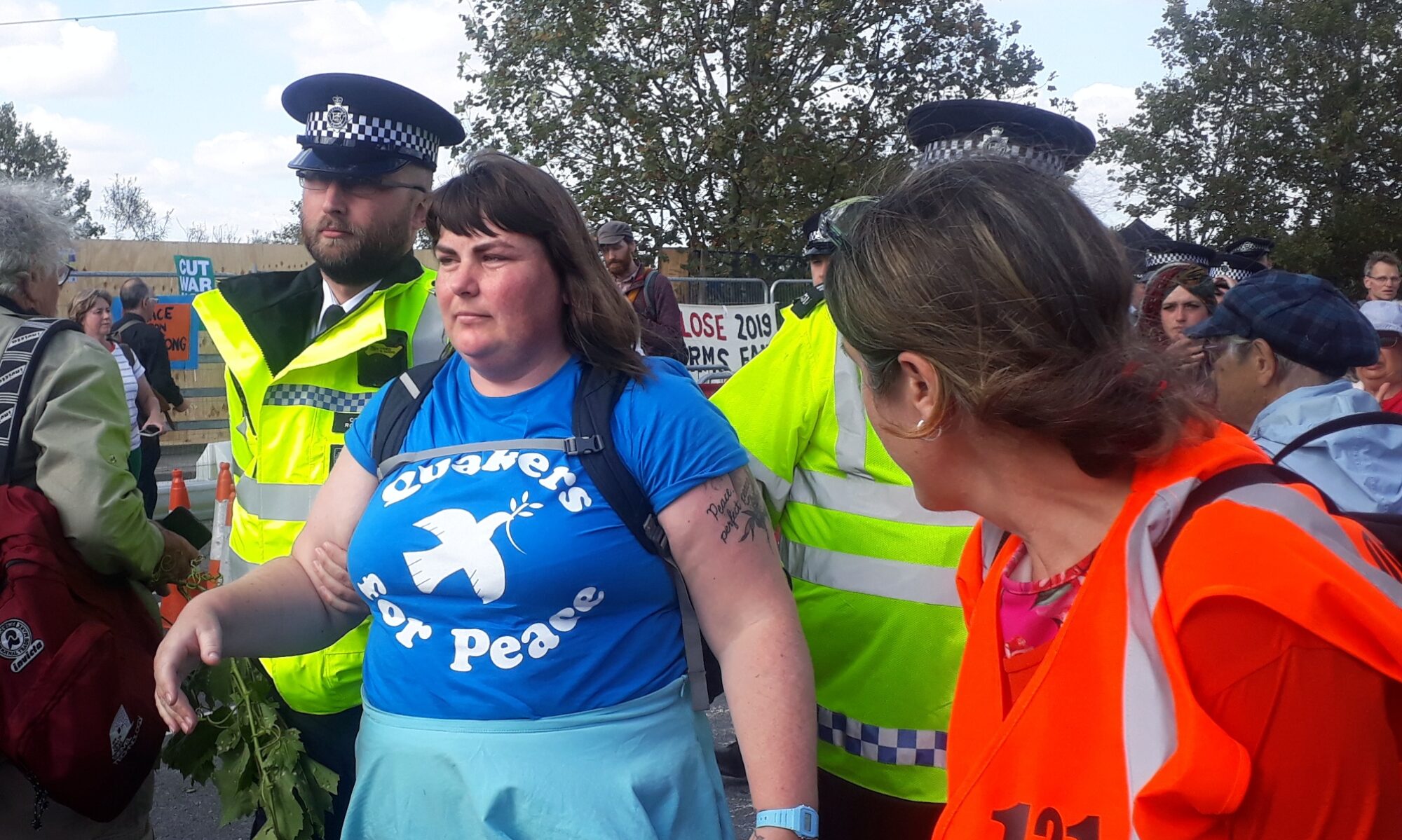Thinking about how we respond to authority can bring up difficult questions and strong feelings for many of us.
On 1st August, we held a session looking at the three key reasons why we are asked not to talk to the police during our actions, which centre around keeping each other safe:
- To act consistently and in consensus with other groups taking action;
- To avoid giving away information to intelligence gatherers;
- To stand in solidarity with those who are disproportionately targeted by police violence.
Many thanks to those who participated, reflecting and listen to one another in the spirit of Advices and Queries 17:
Do you respect that of God in everyone though it may be expressed in unfamiliar ways or be difficult to discern? Each of us has a particular experience of God and each must find the way to be true to it. When words are strange or disturbing to you, try to sense where they come from and what has nourished the lives of others. Listen patiently and seek the truth which other people’s opinions may contain for you. Avoid hurtful criticism and provocative language. Do not allow the strength of your convictions to betray you into making statements or allegations that are unfair or untrue. Think it possible that you may be mistaken.
Friends gathered in small groups to discuss the question ‘why are we asked not to talk to the police during our actions?’ (And similarly why Quaker Roots and Stop the Arms Fair are not planning to engage the police beforehand). Here are some thoughts that arose:
Acting consistently with others
- Making sure everyone is on the same page
- Need to decide the level of risk we’re prepared to take – but not just making a decision on your own behalf – what we say and do affects others
- Acting together helps strengthen our right to protest
The role of the police
- Police are constantly information gathering
- They’ve got a job to do, which is in tension with our right to protest
- Can we trust the police? Be wary of appearance of friendliness, which may hide an agenda
- Having these discussions can make us challenge our own compliance
- Someone from BYM will be available to be a liaison on the day – they will know in advance what they’re going to say and not say
Solidarity
- Solidarity with others – disproportionately affected by police violence
- Level of risk is not equal for everyone
- In particular: people of colour, young men, Muslims, trans people, people with insecure immigration status, are at greater risk
- Avoid division between ourselves as ‘good’ protesters, and others as ‘bad’ protesters
Helpful approaches we might take:
- Try not to seek engagement
- Be polite but step away
- Use each other’s names less – call each other Friend
- Use the power of silence
- Understand the context – might be different to everyday situation
- Have a degree of suspicion, without letting it change us
Thanks to everyone for their helpful thoughts and challenging questions. Hannah Brock-Womack wrote a helpful blog ahead of our actions in 2021, which remains a useful reflection on these issues:
Trying to be salt and light: interacting with the police at protests
Know Your Rights
Quaker Roots take our position on interacting with the police in line with Green & Black Cross’ (GBC) key advice for protesting.
- No Comment
- No Personal Details
- Under What Power?
- No Duty Solicitor
- No Caution
If you’ve not attended one before, GBC are offering three online Know Your Rights training sessions in August. At Quaker Roots we recommend these sessions for those joining our actions at DSEI, especially if you have questions or are feeling unsure about recent changes to protest law.
Read more and register on the GBC website.
Maintaining Hope
Finally, we ended the session by remembering that the police are not the primary reason we will be witnessing at DSEI. We recalled the powerful testimony of our speakers at the Human Cost of War event. And we concluded with some helpful words written by Rebecca Solnit, on the power of hope:
“Hope is not happiness or confidence or inner peace; it’s a commitment to search for possibilities.”

